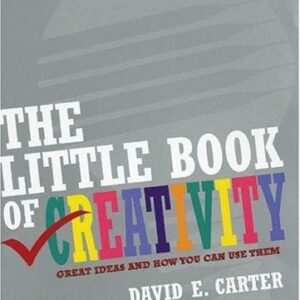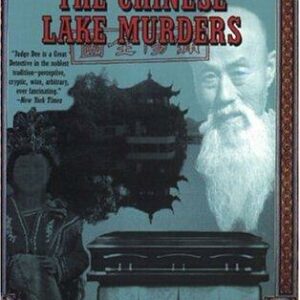The Fall of the House of Zeus
$18.00
| Title | Range | Discount |
|---|---|---|
| Trade Discount | 5 + | 25% |
- Description
- Additional information
Description
Description
“Masterful . . . an epic tale of backbiting, shady deal-making, and greed [that] reads like a John Grisham novel.”—The Wall Street Journal
A real-life legal thriller as timeless as a Greek tragedy, tracing the downfall of one of America’s most famous lawyers and exposing the dark side of Southern politics—from the author of When Evil Lived in Laurel
Dickie Scruggs was arguably the most successful plaintiff’s lawyer in America. A brother-in-law of former U.S. Senate majority leader Trent Lott, Scruggs made a fortune taking on mass tort lawsuits against Big Tobacco and the asbestos industries. He was hailed by Newsweek as a latter-day Robin Hood and was portrayed in the movie The Insider as a dapper aviator-lawyer. Scruggs’s legal triumphs rewarded him lavishly, and his success emboldened both his career maneuvering and his influence in Southern politics—but at a terrible cost, culminating in his spectacular fall, when he was convicted for conspiring to bribe a Mississippi state judge.
Based on extensive interviews, transcripts, and FBI recordings never made public, The Fall of the House of Zeus uncovers the Washington legal games and power politics: the swirl of fixed cases, blocked investigations, judicial tampering, and a zealous prosecution that would eventually ensnare not only Scruggs but his own son, Zach, in the midst of their struggle with insurance companies over Hurricane Katrina damages.
Featuring Trent Lott and Jim Biden, brother of then-Senator Joe Biden, in supporting roles, with cameos by John McCain, Al Gore, and other Washington insiders, Curtis Wilkie’s account of this uniquely American tragedy reveals the seedy underbelly of institutional power.
“The Fall of the House of Zeus is a riveting American saga of ambition, cunning, greed, corruption, high life and low life in the land of Faulkner and Grisham. These are good ol’ boys gone bad with flair, private jets, and lots of cash to carry. Curtis Wilkie, a child of the South and a reporter’s reporter, is the perfect match for this wild ride.”
—Tom Brokaw
“Addictive reading for anyone interested in greed, outrageous behavior, epic bad planning and character, lousy luck, and worst of all, comically bad manners. Wilkie knows precisely where the skeletons, the cash boxes and the daggers are buried along the Mississippi backroads. And he knows, ruefully — which is why this book demands a wide audience — that the south, no matter its looney sense of exceptionalism, is pretty much just like the rest of the planet.”
—Richard Ford
“The legendary yet factual Curtis Wilkie has been the right man in the right place at an uncanny number of extraordinary times.”
—Roy Blount Jr.
“I can think of no one more qualified to write about the modern South than Curtis Wilkie”
—Willie Morris
“Reads like a John Grisham novel….An epic tale of backbiting, shady deal-making and greed ….Masterful.”
—Wall Street Journal.com
“Fascinating, breath-holding action….The undisputed accuracy of recorded dialogue will fan embers that will keep this story alive for decades—not only in Mississippi…but anywhere obscene wealth, arrogance, and narrow-mindedness grant us human beings a look into the darkest rooms of our hearts.”
—Clyde Edgerton, Garden & Gun
“In telling a great legal story about a great legal story teller, Wilkie has produced a page-turning masterpiece that explores power, greed, hubris and the human condition. The Fall of the House of Zeus is a Greek Tragedy set in the modern south. Lawyers, clients and anyone interested in seeing how the sausages of justice get made will love this book.”
—Alan Dershowitz, Author of The Trials Of Zion
“An absorbing political fable…The story of all that rolling money, and tales of the bit players with dank palms who roam the subplots, make THE FALL OF THE HOUSE OF ZEUS a standout read.”
—Jason Berry, Politics Daily
“Equal parts biography and legal thriller.”
—Roll Call
“Wilkie provides a nuanced inside account of the fall of Mississippi trial lawyer Richard “Dickie” Scruggs, now in federal prison.”
—St. Louis Post-Dispatch
“Curtis Wilkie is a superb writer. There are few books which have ever motivated me to read every word written by the author. Wilkie’s book is such a book.…For anyone interested in the confluence of money, power, and politics, The Fall of the House of Zeus is a must read.”
—Thomas Naylor, Professor Emeritus of Economics, Duke University, Counterpunch
“A fascinating and eye-oopening modern day account of politics, greed, hate, and their power over men.”
—Memphis Lawyer
“Whether it’s read for entertainment or studied as a cautionary tale, The Fall of the House of Zeus and its author deserve their place among Mississippi’s great enduring literature.”
—Delta Magazine
“Almost feels like a John Grisham novel…but at no point is it fiction. The Fall of the House of Zeus is a great read.”
—Desoto Times Tribune
“Riveting….a remarkable illustration of how far the mighty can fall.”
—Publishers Weekly (starred review)
“A meaty biography extolling the rise and fall of an infamously lucrative trial litigator….Wilkie charts his subject’s serpentine legal and political machinations with dense, rich prose.”
—Kirkus
“Not since Willie Morris has anyone written so poignantly about the South.”
—John Evans, proprietor of Lemuria Books, Jackson, MS in Missippians magazine.
“Wilkie’s book is well-researched and well-written, and also completely engaging.”
—Biloxi Sun Herald
Curtis Wilkie covered civil rights activity in Mississippi in the 1960s and afterward served as a national and international correspondent for a quarter century at the Boston Globe. He lives in Oxford, Mississippi.CHAPTER 1
In the summer of 1992, a time when fortune first began to bless him with riches, Dick Scruggs received a disturbing call from his close friend Mike Moore, the attorney general of Mississippi. Moore reported that he had learned of a plot against the two of them by members of a political network that had been dealing influence throughout the state for
decades. The powerbrokers were said to be indignant over a lucrative arrangement between Scruggs and Moore that enabled Scruggs, a private lawyer in the Gulf Coast city of Pascagoula, to collect $6 million in contingency fees while representing the state as a “special assistant attorney general” in legal actions against the asbestos industry.
Scruggs and Moore, regarded by the old guard as upstarts, had succeeded after a similar plan by members of the network had failed a few years earlier because of a shortfall in state revenue. Among the members of the cabal, Moore told Scruggs, were State Auditor Steve Patterson and Ed Peters, the Hinds County district attorney with jurisdiction in Jackson, the state capital. These men and their allies not only were disgruntled over Moore’s contract with Scruggs; they had determined it was illegal and planned to indict Scruggs—a move that would also serve to short-circuit Moore’s climb to political prominence.
Despite his emergence as a leader in asbestos litigation and his alliance with the attorney general, Scruggs was still naïve in the practiceof backroom politics in Mississippi. When he heard that he was likely to be indicted, fear ran through him like a fever. His head throbbed at the outrageousness of the accusation, and despair gnawed at his gut.
He found himself frightened and unsure where to turn.
Scruggs knew that he faced formidable forces representing an amalgamation of old Democrats and new Republicans, the survivors and descendants of a mighty political apparatus once controlled by the late senator James O. Eastland. Working the phone, he reached out to other sources for help.
As a major donor to the state Democratic Party, Scruggs made a late night call to Jackson attorney Danny Cupit, an operative with broad connections in party affairs. “They’re out to get me,” Scruggs wailed, blaming his dilemma on hostile politicians and professing his innocence. To Cupit, it sounded as though Scruggs was weeping. He offered
to make some calls on Scruggs’s behalf.
Instinctively, Scruggs also phoned his brother-in-law in Washington, Republican senator Trent Lott. The lawmaker listened while Scruggs complained about the perfi dy of the charges being prepared against him. Lott made no promises—for this seemed to be the work of squabbling Democrats back home—but he assured Scruggs he would do
what he could.
Others provided counsel—recommendations of good criminal defense lawyers and expressions of support—yet Scruggs remained uncomfortable. And lately he had grown accustomed to comfort. He had recently become a man of consequence in Mississippi, even before his fortieth birthday, when he hit a big lick—as lawyers like to call any
sizable fees won in damage suits. With his new wealth, Scruggs had bought a sailboat, a luxury car, an airplane, a home with a view of the gulf, and he had begun to use his money to dabble in politics.
Scruggs seemed driven by a lust to become a winner, a characteristic often developed in childhood by smart but poor boys, and now he had to consider that the life he had built for himself and his family might be wiped out. An indictment could prove him unworthy for his wife, Diane, a local beauty who had been considered too regal for him when they were in high school. Criminal charges against Scruggs would also besmirch his son, Zach, on the threshold of his freshman year at Ole Miss, and the Scruggses’ younger, adopted daughter, Claire.
Scruggs’s downfall appeared to be coming at almost the same warp speed as his rise in the legal profession.
. . .
After treading in the backwaters of the state bar as a young lawyer specializing in bankruptcies, Scruggs had a breakthrough in the 1980s, after he devised an innovative way to attract a multitude of clients claiming to suffer from exposure to asbestos. In Pascagoula, the shipbuilding city where he lived, asbestos litigation had become something of a local industry itself. Thousands of workers had passed through the giant Ingalls Shipbuilding facility since World War II, producing countless vessels that helped keep the U.S. Navy afloat. Over the years, the work force at Ingalls had used asbestos to wrap the pipes, reinforce the boilers, and protect the engines of the ships they built. Eventually, it began to dawn on some of them that their jobs had come at a price: inordinate numbers of the shipyard workers were succumbing to mesothelioma, an illness that could be traced directly to handling asbestos.
Scruggs missed out on the fi rst wave of damage suits fi led in Mississippi in the 1970s in connection with asbestos. But after setting up a clinic in 1985 that provided free medical diagnoses for those who felt they might have contracted mesothelioma, he was able to enlist hundreds of clients. Then he fi gured out a way to consolidate these cases into one blockbuster lawsuit so ominous that the asbestos companies were willing to pay millions in settlements negotiated outside the courtroom in order to avoid the possibility of even greater losses in a trial.
By 1992, Scruggs stood out as a paradigm in his profession, a plaintiff’s lawyer representing the powerless masses, whether they were humble shipyard workers in Pascagoula or ailing consumers bringing product liability complaints. Scruggs and his colleagues around the country called themselves “trial lawyers,” and they thought of themselves
as the new guardians of the American public, stepping into a vacuum created by a lack of government regulation. During twelve years of Republican rule in Washington, a time when Big Government had been turned into anathema, the teeth had been pulled from regulatory agencies. Big Business had been given an advantage, and it seemed
that the only place to hold industry accountable was in the courts.
In the 1980s and ’90s, the trial lawyers waged legal assaults on asbestos and tobacco, defective autos and dangerous chemicals, against careless physicians and deadly medications. In many cases, they won astronomical awards. They also earned a legion of enemies: boosters from chambers of commerce, rival corporate defense attorneys, Republicans protective of business interests, prosecutors suspecting legal malfeasance, even ordinary citizens simply appalled by the size of the judgments. But along the way, men like Scruggs became as rich as the
captains of Fortune 500 companies.US
Additional information
Additional information
| Dimensions | 0.9000 × 5.2000 × 7.9300 in |
|---|---|
| Imprint | |
| Format | |
| ISBN-13 | |
| ISBN-10 | |
| Author | |
| Audience | |
| BISAC | |
| Subjects | greek tragedy, crime books, insurance, us history, political books, Biden, hubris, gifts for lawyers, united states history, law books, criminal justice, criminology, POL064000, Hurricane Katrina, legal thriller, Expose, john mccain, al gore, mcain, fall from grace, misconduct, curtis wilkie books, curtis wilkie, south, politics, america, crime, american history, biography, tragedy, American, law, conspiracy, justice, FBI, history, political science, HIS036120, southern, washington DC, Greed, history books, washington, biographies, hurricane, hurricanes |










